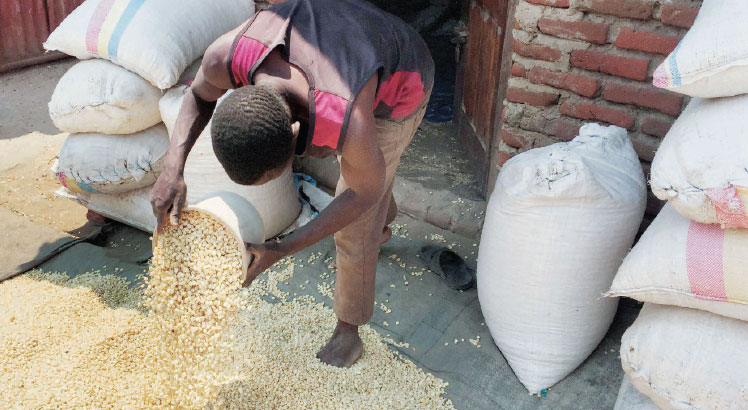Local food prices up despite global decline—World Bank
The World Bank says food inflation remained elevated in Malawi last year despite a drop in food prices and raw materials such as fertiliser and seed on the global market.
In its latest Food Security Update published on Tuesday, the Bretton Woods institution noted that nominal year-on-year food inflation closed at 42 percent as of December 2023 while real food inflation closed at nine percent.
The bank says it expects the prices to drop this year, but cautions that there are some downside risks, including the disruption caused by Russia’s withdrawal from the Black Sea grain deal and the impact of El Nino.
Reads the report in part: “Macroeconomic conditions pose risks because central banks’ interest rate hikes may restrict borrowing and investment in agriculture.

the local market
“Sluggish global growth could reduce demand and prices. Currency fluctuations also play a role in local market food price inflation.”
In terms of food categories, the cereal price index averaged 122.8 points, which is 16.6 percent lower than its December 2022 value.
However, maize prices, a key determinant of the country’s Consumer Price Index, dropped by 19 percent while wheat prices were 29 percent lower.
A Maize Market Report published by International Food Policy Research Institute showed that maize prices at the end of December 2023 were the highest, selling at an average of K859 per kilogramme (kg) or K42 950 per 50 kg bag in the last week of December.
Reacting to the developments, Lilongwe University of Agriculture and Natural Resources agricultural economist Horace Phiri said it is not surprising that local food prices remained elevated because they are not influenced by global prices.
He, however, said that the exchange rate and rising inflation could cause local food prices to remain high.
“The risk also applies, especially for large farms that can access formal loans,” he said.
The persistent high food prices could undermine the availability of maize, a staple food for more than 80 percent of Malawians in the short to medium-term, according to the World Bank.
In an earlier interview, Consumers Association of Malawi executive director John Kapito said the rising cost of living coupled with low incomes and a diminishing maize stock could limit people’s access to maize.






One Comment